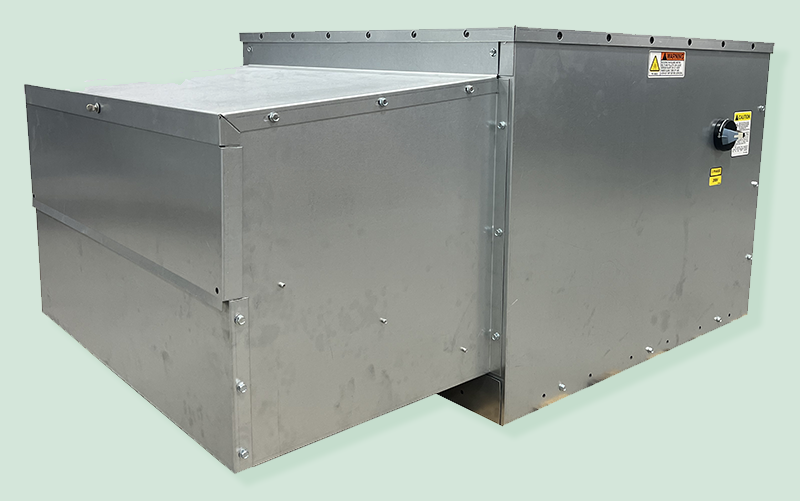Commercial kitchens require robust ventilation systems to maintain air quality, safety, and efficient operation. One of the critical components of these systems is the supply fan. Below is an explanation of the importance of supply fans in commercial kitchen ventilation systems, covering key benefits and their roles in various functions.
1. Maintaining Air Balance
-
Prevention of Negative Pressure: Without adequate air being supplied to the kitchen, powerful exhaust fans can create negative pressure inside the room. This imbalance can make it difficult to open doors, pull unconditioned or dirty air from adjacent areas, and disrupt overall airflow. A supply fan compensates by providing fresh air to counterbalance the air being removed by exhaust fans.
-
Ensures Proper Ventilation: Supply fans ensure that an appropriate amount of fresh air enters the kitchen. This is essential not only for comfort but also for replacing the air that is exhausted, keeping the ventilation system efficient.
2. Enhancing Air Quality
-
Dilution of Contaminants: Supply fans introduce fresh, outdoor air into the kitchen, which helps dilute the concentration of airborne contaminants such as smoke, grease, and odors produced by cooking. This fresh air helps maintain a healthier and more breathable environment for kitchen staff.
-
CO2 and Humidity Control: Cooking activities can release not only grease and odors but also CO2 and moisture. The introduction of outside air via supply fans helps manage indoor CO2 levels and humidity, promoting better air quality and reducing the risk of mold growth or unhealthy work environments.
3. Temperature Control
-
Comfort for Kitchen Staff: Kitchens are notoriously hot environments due to the use of ovens, stoves, and fryers. By introducing cooler air from outside, supply fans help maintain a more comfortable temperature inside the kitchen. This can lead to improved worker productivity and reduce the risk of heat-related illnesses.
-
Reduction of Air Conditioning Load: Properly balanced supply fans can reduce the load on the air conditioning system by preconditioning the air that enters the kitchen. This can lead to energy savings, making the system more efficient and cost-effective.
4. Fire Safety
-
Adequate Oxygen Supply: In the case of a fire, an adequate supply of fresh air is necessary to prevent smoke from overwhelming the space. Supply fans help control the flow of air, ensuring proper ventilation for smoke evacuation systems and aiding in the operation of fire suppression systems.
-
Preventing Backdrafts: In the absence of adequate supply air, there is a risk of backdrafts, which can cause flames or smoke to spread through ducts or kitchen hoods. Supply fans help maintain the correct airflow to minimize the risk of such occurrences.
5. Energy Efficiency
-
Optimized HVAC Performance: An imbalance between supply and exhaust air can cause the HVAC system to work harder to maintain the desired air conditions. By introducing the necessary amount of fresh air, supply fans help reduce energy consumption, making the entire system more efficient.
-
Heat Recovery Systems: In some advanced commercial kitchen setups, supply fans can work with heat recovery systems, where exhaust air's heat is used to precondition incoming fresh air. This further increases the energy efficiency of the system.
6. Compliance with Health and Safety Regulations
-
Ventilation Standards: Commercial kitchens must adhere to strict ventilation standards set by health departments and safety regulations. Supply fans are crucial for meeting requirements for air changes per hour (ACH), indoor air quality, and temperature controls.
-
Mitigation of Airborne Pollutants: Ensuring that fresh air is supplied to the kitchen helps in reducing concentrations of airborne pollutants, ensuring compliance with occupational health standards and reducing health risks for staff.
Conclusion
Supply fans are an integral part of any commercial kitchen ventilation system, contributing to air balance, air quality, temperature control, fire safety, energy efficiency, and regulatory compliance. Without a properly functioning supply fan, the kitchen environment could quickly become uncomfortable, unsafe, and inefficient. By ensuring a steady flow of fresh air, supply fans play a pivotal role in maintaining the kitchen's functionality and the well-being of its workers.

